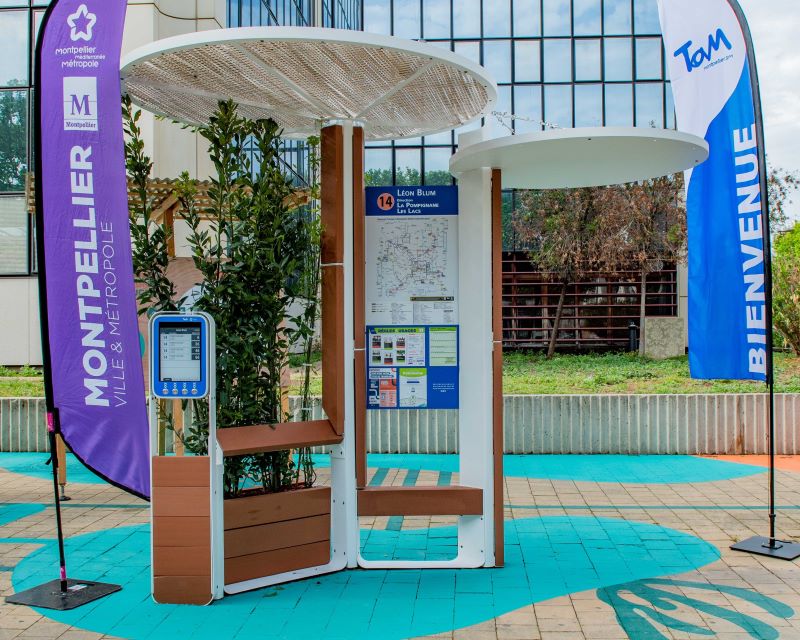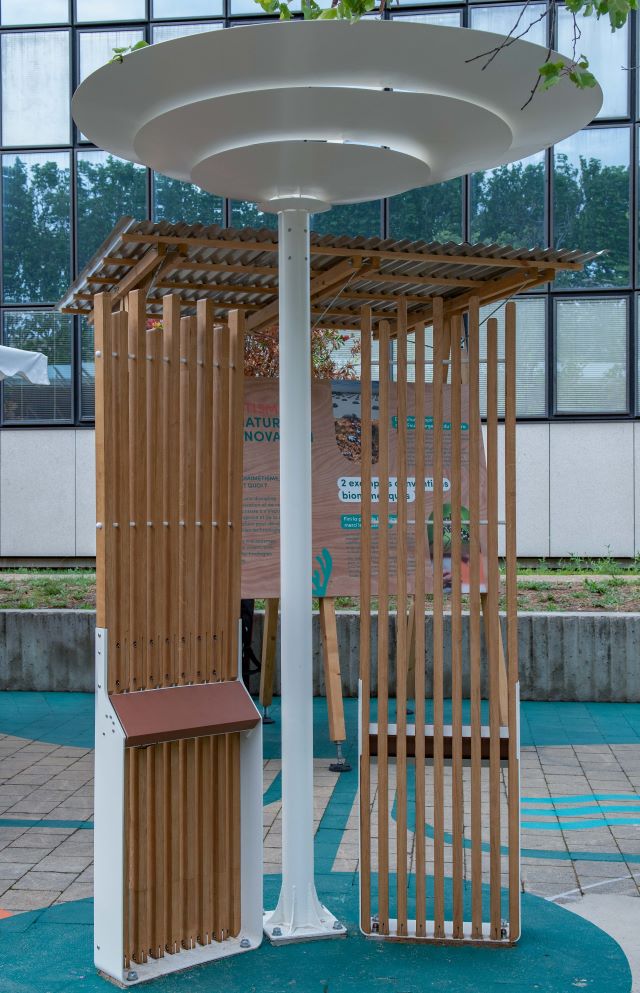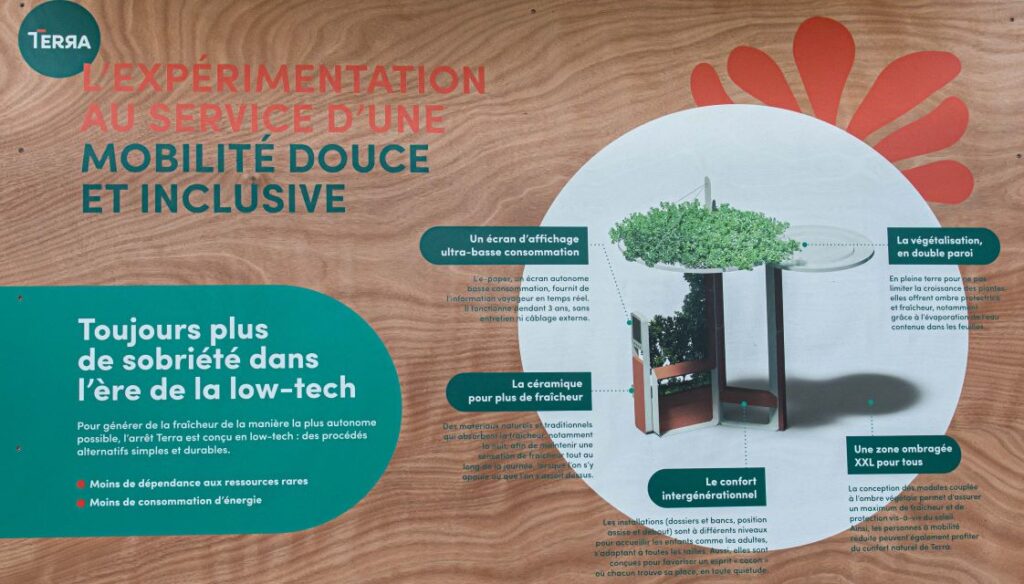terra bus stops in Montpellier

Faced with the challenge of global warming and its impact local areas and people, it has become a priority to offer modes of transport that emit less CO2. This is why Montpellier implements ecological transition of mobility, by ensuring that it offers attractive, supportive and inclusive services.
The Terra bus stop experiment, launched by Lemon®, Montpellier Méditerranée Métropole’s Mobility Experimentation Laboratory, TaM and Transdev, symbolizes this desire to rethink urban transport with a view to user comfort and well-being.
The TERRA stop and its prototype furniture are inspired by nature to improve passenger comfort and well-being by providing a feeling of coolness in hot weather.
Launched in 2022, the TERRA experimental project has entered its second phase, from April to October 2024, at the Léon Blum bus stop in Montpellier. This prototype, now optimized thanks to the lessons learned from its earlier version, aims to increase user comfort by providing more shade and coolness, particularly in hot weather.

Signature materials and looks, and new modules designed using biomimicry
The TERRA bus stop, designed using natural, sustainable materials, has been conceived to blend harmoniously into the urban landscape of the Montpellier metropolis and contribute to the enhancement of the environment.
The first phase of this experiment was an exhibition in front of City Hall: an opportunity to raise public awareness to the challenges of global warming, to highlight the city’s commitment to mobility, and to present the innovative features of the of the Terra bus stops experiment. The experimental stops will then be installed on the TaM network for a period of 2 years.
The 2024 experiment builds on the success of the 2022 project, and in 2024 adopts an innovative and unprecedented approach: biomimicry! Several strategies are deployed to enhance the sense of well-being:
- using durable, heat-resistant materials, such as ceramics and raw earth, and plants, which were tested in the 1st phase and recorded temperature differences of 15 to 20 degrees with conventional stops;
- using “technical bricks” inspired in particular by the living world: the polar bear, the cactus and the tree. Biomimicry consists in observing and drawing inspiration from the mechanisms, materials and functions of the living world to develop new, value-creating innovations;
- testing an ultra-low-consumption e-paper bollard with real-time information;
- proposing modular street furniture that can be adapted to any configuration in the public space.

